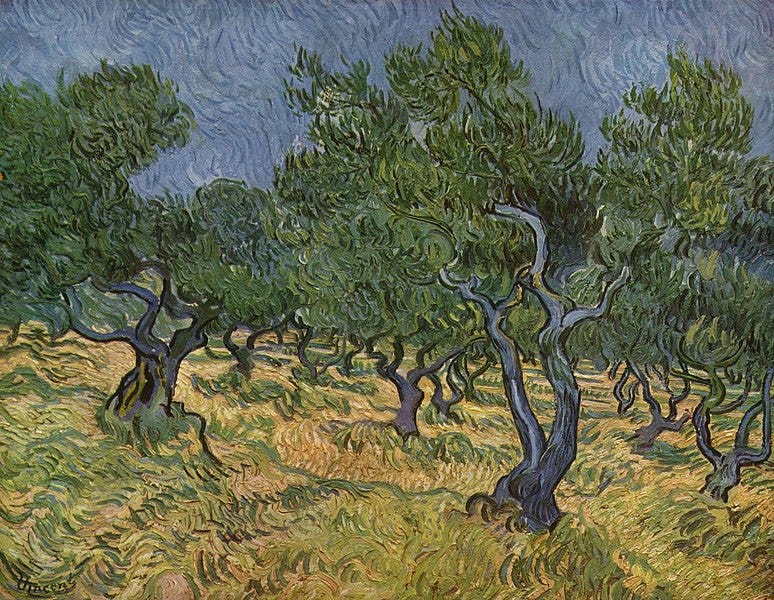Existential Expression
As rational beings, we have a need for existential expression. It is not enough for us to be born, work and consume, and die without having a sense of vocation, a taste of leaving a legacy, or creating meaningful relations to have some effect on the world, however small. We develop our existential voice, far beyond what is necessary, in ways to exercise our potency on the world and fulfill or create meaning. Even shouting into the abyss can be cathartic. We have positive ways to exert ourselves on the world through creating: words, art, physical movement.
The modern world is full of rather immediate satisfactions of desires—we have great convenience and accessibility to meet our physiological needs, very few threats to our daily comfort, and institutions of society demanding our attention and telling us what we want before we know it ourselves. Yet, it is not enough to merely consume food, entertainment, comfort, and pleasure. Those who barely do more than what is essential to survive live in anxiety of unfulfillment and existential dread. The striving for some expression is evident in narrative structure, where typical stories give even accomplished protagonists some unsatisfied quest—we follow our hero in achieving their greatness through exercising their virtuous characteristics.
Existential expression can be through various forms. Language is fundamental to the rational animal with ideas and fundamental to expression as our form of communication. Healthy logos expression includes writing, reading, discussing with others, persuading with rhetoric, and sharing with parrhesia. We are also passionate beings, with healthy thumos expression in creating art, rooting for our favorite sports team, singing lyrics that put to music some idea beautifully, or traveling to experience and exchange fresh perspectives in order to create. As well we are physical creatures, with eros expression of movement, from exercise, dance, sex, facial reactions, emojis, and gestures.
Philosophers, psychologists, and traditional health practitioners have long addressed how these forms of expression are each important, and that when there is a disfunction, obstruction, or imbalance, there is a problem in the whole of the self. Some modes of dialogue or therapies even cleverly employ a combination of forms of expression to enhance the work on the self, such as Aristotle’s Peripatetics, where he would walk with his students while doing philosophy.
Once conscious of this need, it can be rather evident when you look at someone that they lack some healthy existential expression. For instance, one who is ungraceful in movement, has a rather gooey body, and requires some provocation to start an activity probably struggles with eros expression. They are not comfortable in their own body and what the body reveals about them, so they hide it and avoid using it, even denying its needs and characteristics. Although it seems contradictory to have the extreme opposite also be a sign of the same issue, those who occasionally burst in anger, scream in frustration, or resort to violence likely suffer the same. They may avoid invitations and environments related to healthy forms of expression. Or again the opposite, they may overcompensate by pursuing some extreme, unhealthy, sadistic form of expression, for instance physical abuse. The need for existential expression is rarely discussed, unless one has taken anger management sessions or has a wise mentor. Symptoms are usually treated directly instead of investigated as clues that indicate a more essential mode of being.
Expression works like a therapy. The difference in mood after existential expression is significantly evident to the self and to others. Healthy expression can be playing a game with movement or visiting the gym, creating some art or participating in a community activity, or sharing in a meaningful dialogue or writing some ideas. The existential energy, like in physics, converts from potential—simmering in the body—to actual—exerted and released into the world. In this way, the healthy individual is not hygienic towards the world, but asserting their existence as plants spread their seeds to the wind. It matters little what the seeds make of themselves once released upon the world, but the telos of the tree is satisfied with the seeds’ dissemination.
Pursuing a Philosophical Life: Practical Habits
What is essential to pursuing a philosophical life? This article will likely not stay stagnant, but evolve as ideas are formed and new activities are identified. These ideas are rather from a data point of one, from the subjective and biased perspective of the author who has been developing how to live her own philosophical lif…






